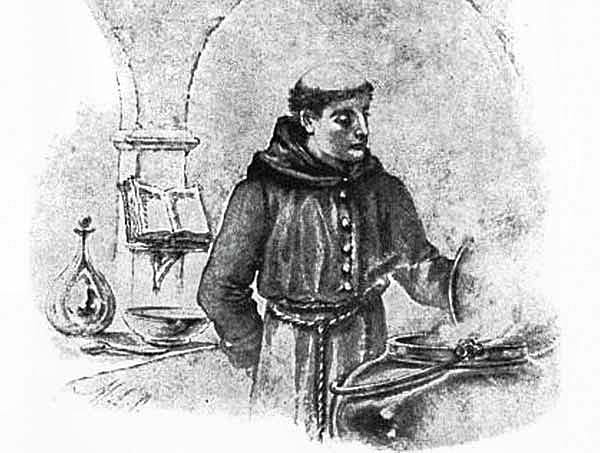I live in a hotbed of ambition. San Francisco is a city built by a gold rush. A successive series of profit-driven “rushes” (from dot-com booms to AI-revolutions) continues to keep it afloat financially, despite deeper problems that remain unaddressed.
Our world rewards that which is great and headline-grabbing and industry-disrupting and financially lucrative. The Lord Jesus, by contrast, rewards the least and the lowest.
The odd thing about the upside kingdom of Jesus is that it’s the “small things” that get prime place. Children. The poor and sick and widowed and marginalized. Seeds and sitting at His feet.
This makes the gospel a subversive message in San Francisco. You can’t IPO a homeless outreach. You can’t scale the sacraments.
only God and not his gifts
Great Christian mystics and spiritual writers through the ages have borne witness to the non-ambition of the kingdom of God. Brother Lawrence was one of them.
A friend of the 17th century monk wrote of him, “He was content doing the smallest chore if he could do it purely for the love of God.” He experienced this kind of satisfaction in simply being with God because “he sought only God and not his gifts.” He wrote,
In the way of God, thoughts count for little, love does everything. And it is not necessary to have great things to do. I turn my omelet in the pan for the love of God; when it is finished, if I have nothing to do, I prostrated myself on the ground and adore my God, who gave me the grace to make it.
This is a recipe for non-ambition. If you’re content to flip omelets, sweep floors or wash dishes for the love of God, how will you make anything of yourself in this world? My Bay Area sensibilities stare in disbelief at this posture.
I can picture Brother Lawrence in a modern work setting, letting others choose their assignments first, willingly taking the last choice task, because he was “willing to work anywhere, always rejoicing at being able to do little things for the love of God.”
This is not a recipe for self-advancement or career success, but of being passed over for other, more ambitious, go-getter types, isn’t it?
Perhaps. But there’s something about this approach to life that simply smacks of God’s kingdom and the faith required of us to live into it. What he understood—and what we need to learn from him—is that the essence of Christian spirituality is to seek “only God and not His gifts.”
communion through God’s gifts
We don’t seek God’s gifts because they do not, cannot satisfy. Rather, we seek God through his gifts! The sacramental nature of all things means that God is accessible in some way through everything He has made.
We don’t seek God’s gifts because the gifts aren’t the point. He is the point. And the things of this world that He gives us only find their full reality and true purpose insofar as we allow them to direct our gaze upon the God who made them.
A sacrament is a "visible form of invisible grace." An important premise of this newsletter is that everything is sacramental—everything can communicate the grace of God if we will let it.
That doesn't make your toast and jam or your pickup truck or a flower petal as holy or grace-filled as the bread and wine of communion. But there is a very real sense in which these things can reveal God and lead us to commune more deeply with Him.
As fallen creatures, our wills are broken by sin and we are constantly being turned from God to what he has made (see Rom. 1:23ff.). The practice of God’s presence, “continuously conversing with God,” doesn’t have to be an active conversation as much as a constant awareness of His gracious presence to us in Christ, by the power of the Spirit.
If we are so busy being ambitious, there won’t be any space left in our hearts for that “continuous conversing with God”. Ambition seeks the gifts; communion seeks God for God’s sake. Constant activity crowds out awareness of God’s grace. Distraction dissipates it; ambition negates it.
If we seek God for God’s sake, rather than seeking the things He gives (and that we think we can achieve through ambition), Jesus promised we will get what we desire. “Seek first the kingdom of God and his righteousness, and all these things will be added to you” (Matthew 6:33). If we are formed by communion, we will receive the greatest gift of all—God Himself.
And we may just get “all these things” that we would have sought through ambition as well.






